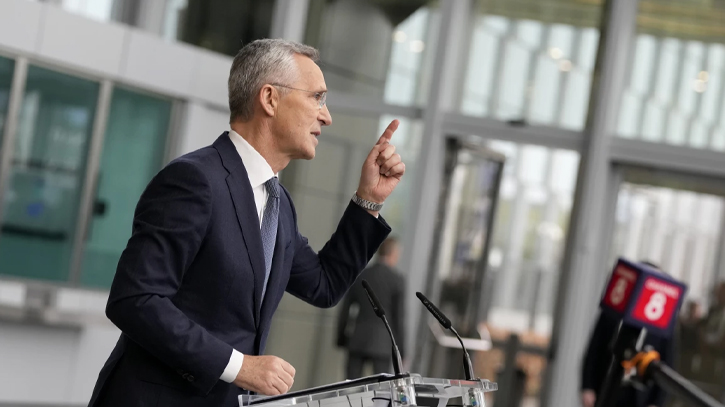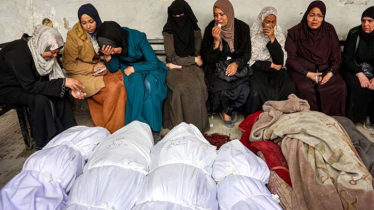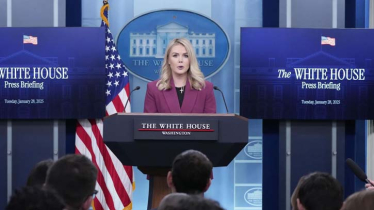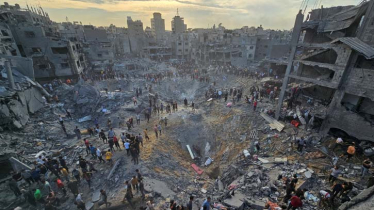
NATO Secretary-General Jens Stoltenberg. Photo: Collected
NATO is debating a plan to provide more predictable military support to Ukraine in coming years as better-armed Russian troops assert control on the battlefield, the organization’s top civilian official said Wednesday (3 April).
“We strongly believe that support to Ukraine should be less dependent on short-term, voluntary offers and more dependent on long-term NATO commitments,” NATO Secretary-General Jens Stoltenberg said before chairing a meeting of the alliance’s foreign ministers in Brussels.
Earlier on Wednesday, Ukraine lowered the military conscription age from 27 to 25 to help replenish its depleted ranks after more than two years of war. A shortage of infantry combined with a severe ammunition shortfall has helped hand Russian troops the initiative.
“The reason why we do this is the situation on the battlefield in Ukraine. It is serious,” Stoltenberg told reporters. “We see how Russia is pushing, and we see how they try to win this war by just waiting us out.”
The plan is to have NATO coordinate the work of the Ukraine Defense Contact Group — a forum of around 50 countries that has regularly gathered during the war to drum up weapons and ammunition for Ukraine — rather than the U.S. European Command.
U.S. Gen. Christopher Cavoli is NATO’s top military commander as well as the head of U.S. European Command, so the person in charge would not change. But Stoltenberg said a formal “institutional framework” is needed as the war drags on and that NATO can provide it.
While the move would not see NATO directly providing weapons to Ukraine — as an organization with 32 members that functions by consensus, the allies only agree to send non-lethal aid like demining equipment, fuel and medical supplies -– it would mark a new phase in its involvement in the war.
NATO is desperate to do more for Ukraine, particularly while Russia holds a military advantage, but its members are not ready to offer the country their ultimate security guarantee: membership. Nor do they want to be dragged into a wider war with a nuclear-armed military power like Russia.
Under the new plan, which is expected to be endorsed by U.S. President Joe Biden and his counterparts at their next summit in Washington in July, NATO would coordinate the military side of Ukraine support efforts by assessing Ukraine’s needs, collecting pledges and running meetings.
Messenger/Sumon








